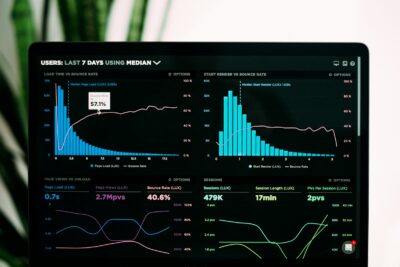The Impact of Machine Learning on Sales Forecasting
In today’s rapidly evolving business landscape, accurate sales forecasting is crucial for companies to make informed decisions and optimize their operations. Traditional methods of sales forecasting often rely on historical data and manual analysis, which can be time-consuming and prone to errors. However, with the advent of machine learning algorithms, businesses in Saudi Arabia and the UAE now have access to more sophisticated and data-driven forecasting techniques.
Enhanced Accuracy and Predictability
Machine learning algorithms excel at identifying patterns and trends within vast datasets, enabling businesses to generate more accurate sales forecasts. By analyzing various factors such as historical sales data, market trends, and customer behavior, these algorithms can provide insights into future sales performance with greater precision. This enhanced accuracy allows businesses to anticipate market fluctuations, identify emerging opportunities, and proactively adjust their strategies to meet changing demand.
Streamlined Operations and Resource Allocation
Implementing machine learning-based sales forecasting models can streamline operations and optimize resource allocation for businesses. By accurately predicting future sales volumes, companies can better manage inventory levels, production schedules, and staffing requirements. This proactive approach helps minimize excess inventory costs, reduce stock outs, and improve overall operational efficiency. Additionally, by aligning resources more effectively with anticipated demand, businesses can maximize profitability and maintain a competitive edge in the market.
Adaptability to Dynamic Market Conditions
One of the key advantages of machine learning algorithms in sales forecasting is their ability to adapt to dynamic market conditions in real-time. Traditional forecasting methods often struggle to account for sudden changes in consumer behavior, economic factors, or industry trends. However, machine learning models can continuously analyze incoming data streams and adjust their predictions accordingly. This agility enables businesses to respond rapidly to market shifts, capitalize on emerging opportunities, and mitigate potential risks.
By leveraging the insights generated by machine learning-based sales forecasting, business leaders can make more informed decisions and develop robust strategic plans. These algorithms provide valuable intelligence on factors influencing sales performance, such as customer preferences, competitive landscape, and external market forces. Armed with this information, executives can identify growth opportunities, allocate resources effectively, and steer their organizations toward sustainable success.
Enhancing Sales Prediction Accuracy
Machine learning algorithms have significantly enhanced the accuracy of sales predictions by analyzing vast amounts of historical data and identifying intricate patterns that humans may overlook. These algorithms utilize advanced statistical techniques and neural networks to uncover hidden correlations between various factors impacting sales performance, such as seasonality, customer demographics, marketing campaigns, and economic indicators. By continuously refining their models based on new data inputs, machine learning systems can generate highly precise sales forecasts, helping businesses optimize inventory levels, staffing, and resource allocation.
Optimizing Marketing Strategies
Another key benefit of machine learning in sales forecasting is its ability to optimize marketing strategies by providing actionable insights into customer behavior and preferences. By analyzing past sales data and customer interactions across multiple channels, machine learning algorithms can identify the most effective marketing channels, messaging strategies, and promotional tactics for engaging target audiences and driving conversions. This data-driven approach enables marketing teams to allocate their budgets more efficiently, personalize their campaigns, and maximize return on investment (ROI).
Machine learning-powered sales forecasting not only helps businesses predict short-term sales trends but also facilitates long-term growth planning by identifying evolving market opportunities and emerging consumer trends. By analyzing historical sales data alongside external factors such as demographic shifts, technological advancements, and industry developments, machine learning algorithms can provide strategic guidance for expanding into new markets, launching innovative products, and diversifying revenue streams.
#MachineLearning #SalesForecasting #BusinessIntelligence #DataAnalysis #AI #PredictiveAnalytics #MarketInsights #ResourceOptimization #StrategicPlanning #BusinessStrategy























